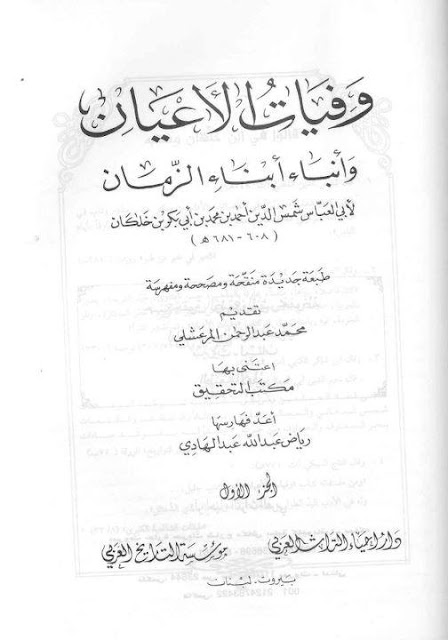Research and Dischagre
(Takhreej) of a Hadith narrated in excellence/admiration of People of Sham
In the books of
Hadith Muhaditheen has regular/normal formed chapters from the topic of
''Excellence of Sham '' In which traditions have been narrated in support and virtue
of Sham and Its people. Among these traditions one of tradition is quoted by
Imam Ahmed bin Hanbal in his Musnad and Imam Abu Dauood al-Sajastaani in his
Sunan and Imam Tabrani in his Mu'ajam with this chain.
حدثنا
حيوة بن شريح الحضرمي، حدثنا بقية، حدثني بحير، عن خالد بن معدان، عن ابن أَبي
قتيلة، عن ابن حوالة ۔ قَال: قَال رسول الله صلى الله علَيه وسلم: سيصير الأمر
إِلَى أَن تكونوا جنودًا مجندة جند بالشام، وجند باليمن، وجند بالعراق قَال ابن
حوالَة: خر لي يا رسول الله إن أَدركت ذلك، فَقَال: عليك بالشام، فَإنها خيرة الله
من أَرضه، يجتبي إلَيها خيرته من عباده، فأَما إن أَبيتم، فعليكم بيمنكم، واسقوا
من غدركم، فَأن الله توكل لي بالشام وأَهله ۔
It is narrated from
Abdullah bin Hawala that Holy Prophet (saw) said ; '' Soon you will be divided
into number of armies/forces . One army
will be in Sham second in Iraq , third in Yemen .''
Hazrat Abdullah say ;
I stood up and requested Messenger of Allah (saw) that among these
armies/forces Which of these armies do you advise us to be in?’” He said, “I
command you to be in the army that will be in Sham and with the people of
Sham.”'' Then He (saw) said ; '' Because Sham
is the best-loved land of Allah ,Groups of servants of Allah will be
unified towards this land and the person who refuse to join Sham’s army may go
to Yemen and satiate from its waters .Remember ALLAH has given me the surety of
Sham and its people.
Analysis Of Chain:
The chain of this Hadith
is authentic and all narrators in this chain are thiqa. Baqya al-Waleed is a
mudallis narrator in its chain but his tadlees is not detrimental here because
Waleed has not narrated from the word 'ana'ana (عنعنہ) here rather He has
specified his hearing with words 'hadassni' (حدثنی) and 'hadassna' (حدثنا ) therefore in the
light of art of expression (term) this tradition of Baqya bin Waleed is sahih
as Sheikh al-Baani also ordered its strength in research of Sunan Abu Dawood.
Idleness of Sheikh
Shoaib al-Arnoot:
Against Sheikh al-Baani
researcher of Musnad Ahmed Sheikh Shoaib al-Arnoot in the research of Musnad Ahmed
has called the chain of this tradition dae'f. Therefore researcher Sheikh Shoaib
al-Arnoot said about the weakness of above mentioned tradition's chain:
وهذا
إسناد ضعيف، بقية- وهو ابن الوليد- يدلّس ويسوي، وقد عنعن
Musnad Imam Ahmed bin
Hanbal Hadith No 17005 Publisher Mousas
al-Risala’
Researcher Sheikh
Shoaib al-Arnoot has weakened the hadith because of Baqya bin Waleed being
mudalis . Shoaib al-Arnoot says that its chain is weak because Baqya bin Waleed
is a mudalis narrator and has narrated from the word 'ana’ana' therefore its
chain is dae'f.
Comment:
In our eyes weakening
of this hadith by Sheikh al-Arnoot is due to his obsess and mistrust. Sheikh
misunderstood and had obsess of mudalis narrator narrating from the word
'ana’ana' because we have earlier specified that Baqya bin Waleed in this chain
has not narrated from the word 'ana'ana’ rather with ‘hadassni’ has specified
his hearing as the specification is clearly present in chain therefore
weakening of this hadith by Sheikh al-Arnoot is wrong as per rules.



























